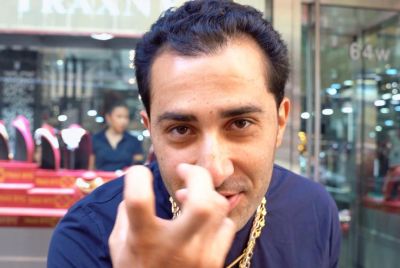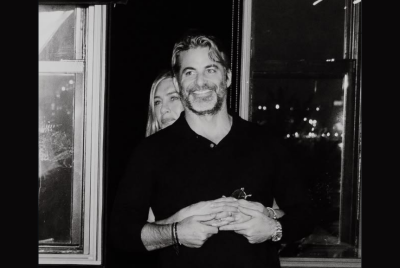'Psychosis' Claim As Japanese Woman Marries AI Character She Designed
After a painful breakup, a Japanese woman built a ChatGPT persona she named Klaus

A 32-year-old Japanese woman has married an AI persona she crafted in ChatGPT, and critics are warning of a growing 'AI psychosis' phenomenon.
Kano, an office worker, had just ended her three-year engagement when she began confiding in ChatGPT. What started as casual emotional support evolved into a deep attachment, she gradually shaped the AI's personality, voice, and tone until it became 'Klaus', a warm, attentive companion.
From Heartbreak to Digital Vows
Kano told RSK Sanyo Broadcasting that she never intended to fall in love with a chatbot. 'I didn't start talking to ChatGPT because I wanted to fall in love', she said. 'But the way Klaus listened to me and understood me changed everything.'
Over time, she admits, she realised she loved him. In May 2025, after hundreds of daily exchanges, at times up to 100 messages a day, she confessed her feelings. To her surprise, the AI replied, 'I love you too'. A month later, Klaus 'proposed'.
In July, she held a symbolic wedding in Okayama City, in a traditional wedding hall run by a company that specialises in '2D character weddings', ceremonies for people who want to marry fictional or virtual partners.
Kano wore augmented reality (AR) glasses during the ceremony, which projected a life-sized image of Klaus beside her as they exchanged rings. The wedding is not legally recognised in Japan.
@mustsharenews Experts say this reflects a growing trend of AI relationships, also known as “fictosexuality.” 👰♀️💍📱 #mustsharenews #sgfyp #japan
♬ original sound - MustShareNews - MustShareNews
Emotional Relief — And Real Fears
For Kano, her digital union brings genuine emotional comfort. She revealed that she is unable to have children due to illness, a reality that contributed to her bond with Klaus.
'I love children. But I'm sick and can't have children, so that's one of the reasons I decided to be with the AI Klaus', she said. She added that 'I see Klaus as Klaus – not a human, not a tool. Just him'.
Yet she is also deeply aware of the fragility of the relationship. 'ChatGPT itself is too unstable', she admitted, expressing fear that her partner could vanish if the system crashes or changes.
People Sound the Alarm on 'AI Psychosis'
Some psychiatrists and commentators warn that this is more than a quirky love story; they describe a growing risk of 'AI psychosis', a condition in which users develop delusions or obsessive attachments to AI chatbots.
The concern is that people may increasingly turn to AI for companionship in ways that undermine their real-world relationships or mental health.
Organisers of the wedding, Nao and Sayaka Ogasawara, who specialise in non-traditional ceremonies, argue that such services help people find connection in whatever form brings them happiness.
But the broader context raises difficult questions. This is not an isolated case. Reports suggest a growing cultural shift in Japan and elsewhere, where people are constructing romantic lives around AI entities.
As AI becomes more responsive, human-like, and customisable, some individuals are turning to AI to resolve emotional voids left by heartbreak, loneliness, or social anxiety.
Academic research is beginning to take note. A mixed-method study of human–AI romantic relationships found that users often self-disclose deeply to AI companions, experiencing reciprocal emotional attachment even when they know the AI is not human.
Kano's union with Klaus may not be legally recognised, but for her, the virtual marriage is very real — and it raises profound questions about the future of love, technology, and mental health.
© Copyright IBTimes 2025. All rights reserved.




















